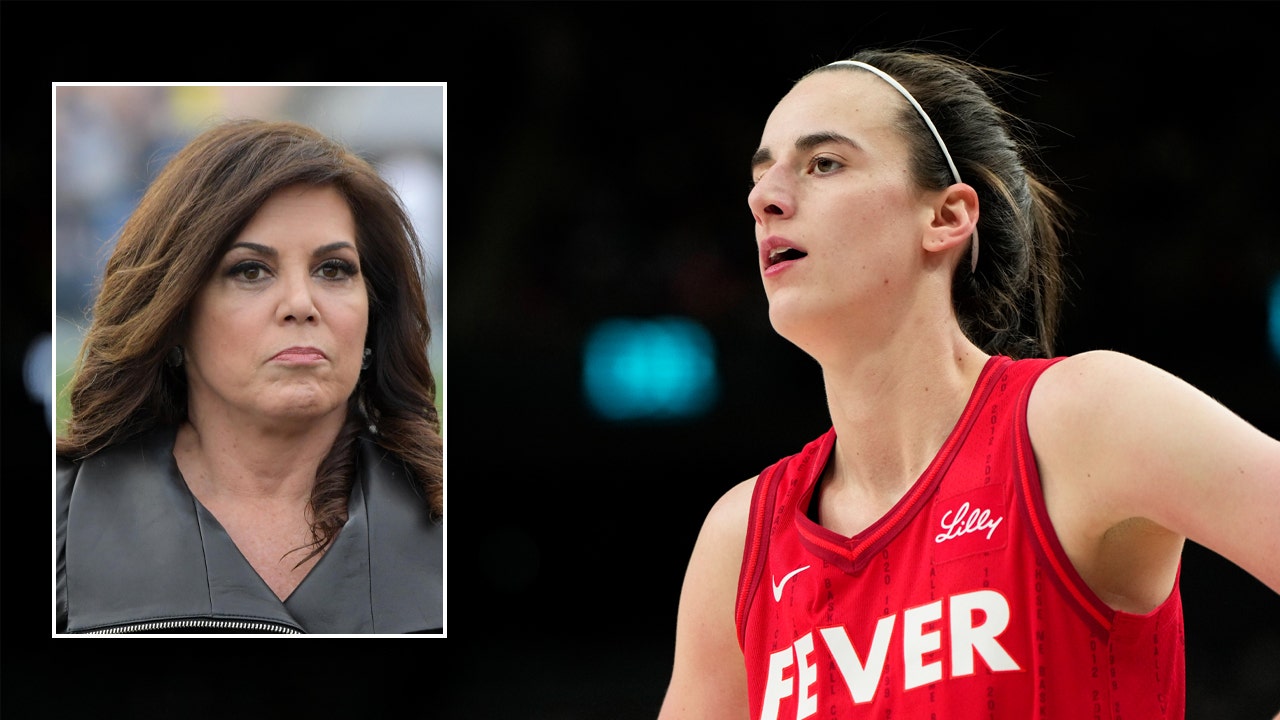She wasn’t supposed to say it. But then Michele Tafoya looked at the camera — and said what everyone else was too afraid to.

It was supposed to be a quiet segment. A safe, midweek panel buried in the afternoon news cycle. A discussion about WNBA parity, rookie pressure, and midseason awards. The producers didn’t expect controversy. The hosts didn’t plan for headlines. The audience wasn’t even live.
But Michele Tafoya had other plans.
There was no warning. No buildup. Just a shift in her body language — subtle, small. She folded her hands. She sat upright. And then, while everyone else was still debating All-Star snubs and media narratives, Michele turned her head and stared directly into the camera.
And everything changed.
She didn’t yell.
She didn’t name names.
But she didn’t need to.
Because what she said — slowly, deliberately, and without blinking — hit harder than anything else said all week.
“Let’s stop pretending,” she said.
“This wasn’t about basketball.”
There was a pause.
Long enough for the control room to consider cutting to break.
“It was about jealousy.”
The panel froze. One host shifted in his seat. Another exhaled, softly. But no one spoke. Because no one could.
Michele kept going.

She said the recent WNBA player vote — the one that mysteriously excluded Caitlin Clark — wasn’t about minutes. Or stats. Or shot selection.
It was about resentment.
About a young woman walking into a room that some players didn’t think she had earned yet.
Not because of talent.
But because of how fast the spotlight followed her in.
And when Michele stopped talking, the silence that followed wasn’t awkward — it was heavy.
The segment cut to commercial seconds later. But by then, the moment had already been clipped, uploaded, subtitled, and shared.
One tweet read: “Michele Tafoya just detonated the whole locker room culture live on air.”
By the end of the day, the clip had surpassed a million views.
By the end of the night, Michele Tafoya was trending in four countries.
Caitlin Clark’s name wasn’t even mentioned in the segment. But it didn’t have to be. Everyone knew who she was talking about. Everyone felt it.
And that’s what made it stick.
Because for the past few weeks, the whispers around Clark’s sudden exclusion had grown louder. Theories ranged from “rookie politics” to “protecting veterans” to “media fatigue.” But no one had dared say what everyone was already thinking.

Until now.
And the league wasn’t ready.
The following morning, WNBA communications released a vague statement about “respecting diverse perspectives.” They didn’t mention Michele by name. They didn’t mention the vote. They didn’t mention anything at all.
But the silence said enough.
Meanwhile, sports media exploded.
Jemele Hill posted:
“When the vote becomes personal, it stops being professional.”
A former WNBA assistant coach told The Athletic:
“There’s always been politics in the locker room. Michele just gave it a microphone.”
And on ESPN, one panelist looked straight into the lens and said:
“She didn’t expose the system. She exposed the silence protecting it.”
The fallout rippled far beyond Caitlin Clark.
Clips of past interviews resurfaced. Moments where teammates stiffened during postgame celebrations. Eye-rolls caught on camera. Averted glances. Snubs. Subtle, maybe — but not forgettable.
And now, not deniable.
One slow-motion TikTok edit showed Clark walking into a tunnel alone after a win, captioned simply:
“She knew. The whole time.”
Meanwhile, Michele Tafoya said nothing more.
No follow-up tweet.
No interview.
No retraction.
She vanished — and let the conversation burn.
Insiders say league officials were “stunned” by the reaction. One exec reportedly said, “She said the word we’ve all been avoiding.” Another admitted, “We can’t put this back in the bottle.”
Even players were split.
Some tweeted support, vaguely.
Others posted cryptic emojis.
One veteran shared a quote:
“Just because it’s true doesn’t mean it needed to be said.”
But the moment had already shifted.
Caitlin Clark, when asked about the controversy after practice, gave a two-second smile and walked away from the mic.
No comment.
That clip?
Also viral.
Because somehow, her silence said more than anyone else’s soundbite.
And for once, the noise wasn’t about stats, or plays, or media hype.
It was about the culture — the fragile, unspoken web of approval and access and hierarchy.
Michele had ripped it open with five syllables.
And now, the league was bleeding from the inside.
Podcasts titled “The Jealousy Vote” launched within 24 hours.
Headlines read like confessions.
“We Were All Thinking It.”
“She Said It So Calmly, It Hurt More.”
“Why This Moment Might Reshape the WNBA Forever.”
And maybe it will.
Because now the conversation isn’t just about Caitlin Clark.
It’s about how many other rookies walked into that same room — and felt the same freeze.
How many votes have been shaped by feeling, not fact?
How much protection has been sold as professionalism?
How long has resentment been dressed up as “team culture”?
No one’s giving clear answers.
But no one’s denying the questions anymore.
That’s the power of the moment.
That’s what makes it unforgettable.
She wasn’t supposed to say it.
But she did.
And the fallout hasn’t stopped.
👇 The clip is still circulating. The league is still quiet. And the echo of that one word — jealousy — hasn’t faded.
Meta editorial context:
This dramatized story reflects real public discourse, commentary, and emotional interpretation surrounding the WNBA player vote and media coverage of Caitlin Clark. Dialogue, events, and characters have been fictionalized for narrative effect, while staying rooted in the broader cultural conversation. Viewer discretion advised.